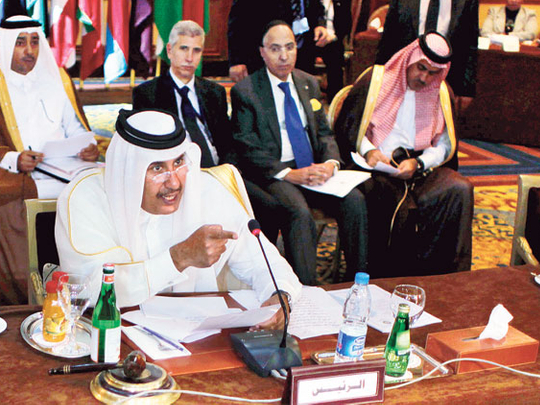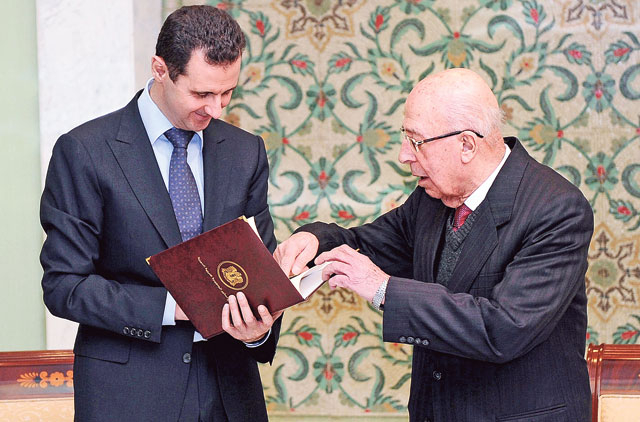
Dubai: Arab foreign ministers meeting in Cairo yesterday agreed to ask the United Nations to form a joint peacekeeping force in Syria, they said in a statement.
They will "ask the UN Security Council to issue a decision on the formation of a joint UN-Arab peacekeeping force to oversee the implementation of a ceasefire."
The ministers also announced the end of a controversial observer mission to Syria more than a month after its monitors withdrew.
They said the Arab League would "end the observer mission, which was formed after the signing of a protocol between the Syrian government and the Arab League secretariat on December 19, 2011."
Earlier, a draft resolution said the ministers will also agree to start talks with the Syrian opposition "to open channels of communication with the Syrian opposition and offer full political and financial support, urging [the opposition] to unify its ranks".
General Mohammad Ahmad Al Dabi, Sudanese head of the League mission, resigned yesterday, hours before ministers began to consider the new proposals.
The meeting is also considering a proposal to expel Syrian ambassadors from Arab capitals. The ministers will call for a "halt to all kinds of diplomatic cooperation with representatives of the Syrian regime in all states and organisations and international conferences," but will leave it to each country to implement that decision, the draft said.
League's new envoy
And they will welcome a call from Tunisia to hold a meeting on Syria in Tunis on February 24, according to the draft.
In the draft, they also stress "the implementation of economic sanctions and an end to commercial transactions with the Syrian regime, except in what concerns the Syrian people directly."
Saudi Foreign Minister Saud Al Faisal urged the League "to provide all means of support" to the Syrian opposition.
"How long will we stay as onlookers to what is happening to the brotherly Syrian people, and how much longer will we grant the Syrian regime one period after another so it can commit more massacres against its people?" he asked ministers at the start of the League session. "At our meeting today I call for decisive measures, after the failure of the half-solutions," he said. "The Arab League should...open all channels of communication with the Syrian opposition and give all forms of support to it."
Earlier, Nabeel Al Arabi proposed appointing Abdul Elah Al Khatib, a former Jordanian foreign minister, as his envoy to Syria.
In view of escalating violence, Arabs "must move fast in all directions through the Security Council and with all countries to mobilize international support" to end violence, Al Arabi said.
In Syria, a commission tasked with drafting a new Syrian constitution submitted a draft charter to President Bashar Al Assad.
Syrian news agency Sana said "Al Assad is to review the draft constitution and refer it to the People's Assembly before putting it to referendum."
Bombing of Homs eases
Syrian security forces eased their week-long bombardment of the central city of Homs yesterday and let a few families leave opposition districts while thousands of protesters crowded the streets overnight, activists said.
Heavy shelling in Homs killed hundreds last week as an 11-month uprising rages nationwide against President Bashar Al Assad's rule. "Around 15 families were allowed to leave from Baba Amro and Inshaat," opposition campaigner Mohammad Al Hassan told Reuters by telephone from Homs. Security forces had allowed the Sunni families out during the lull, he said, but apart from the mass protests people were not venturing out of their homes.













